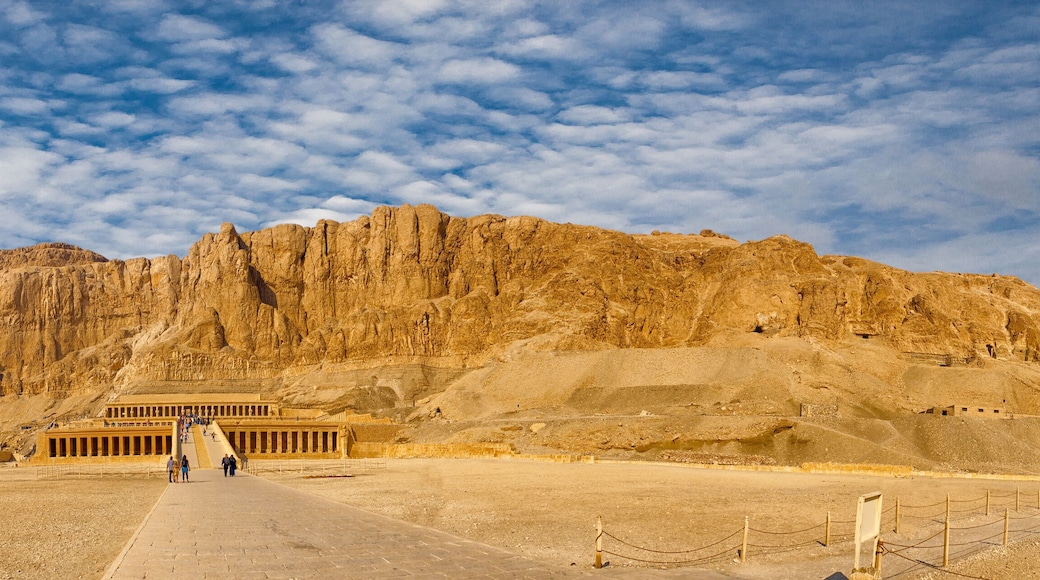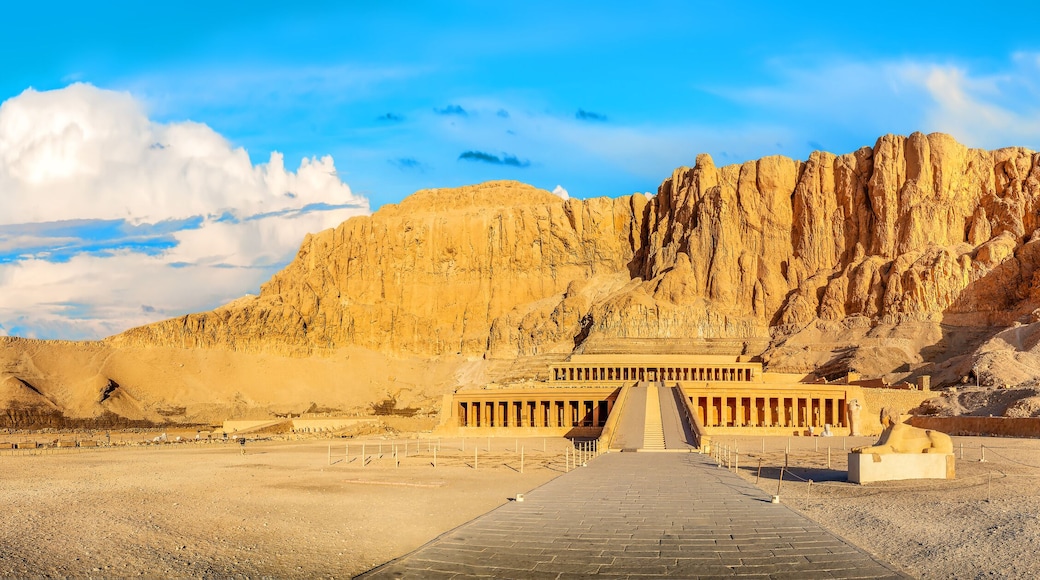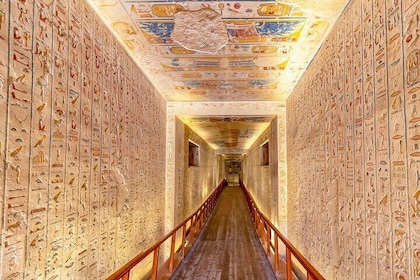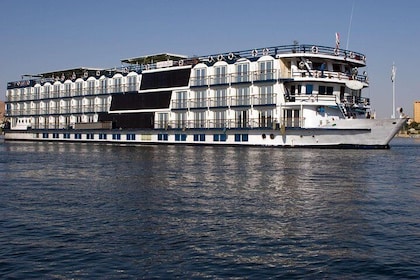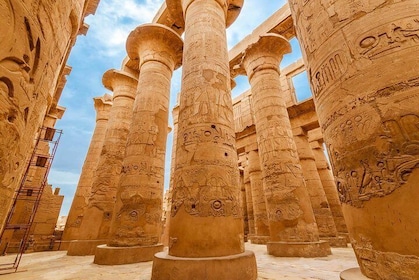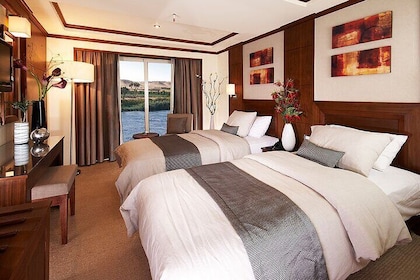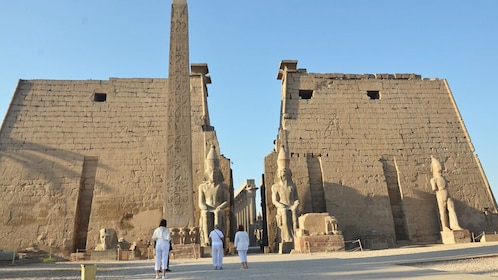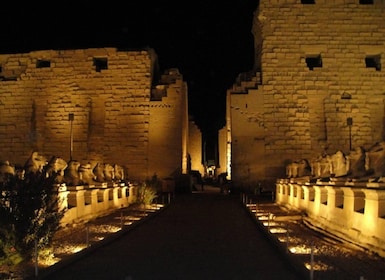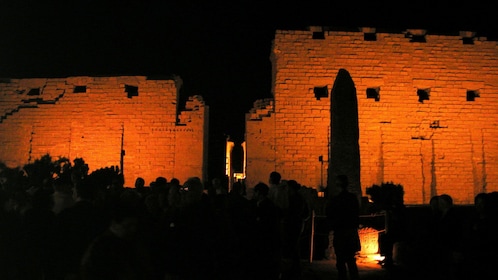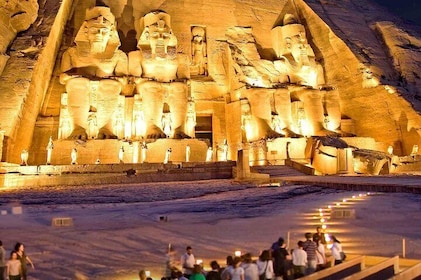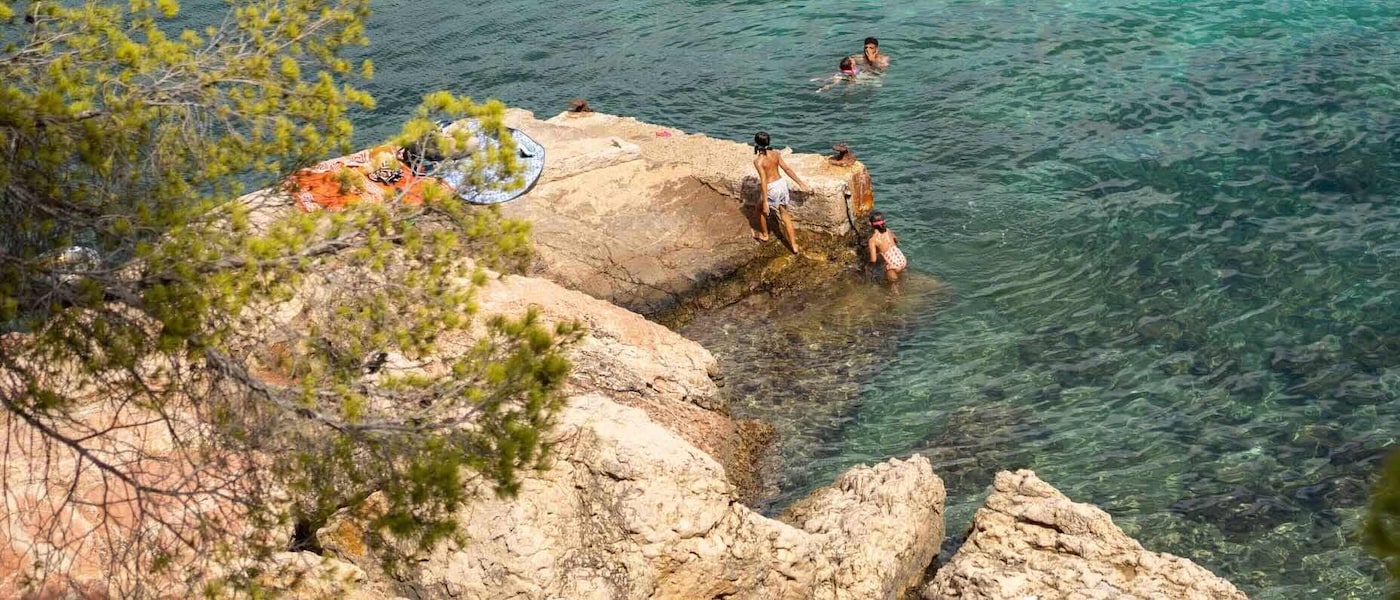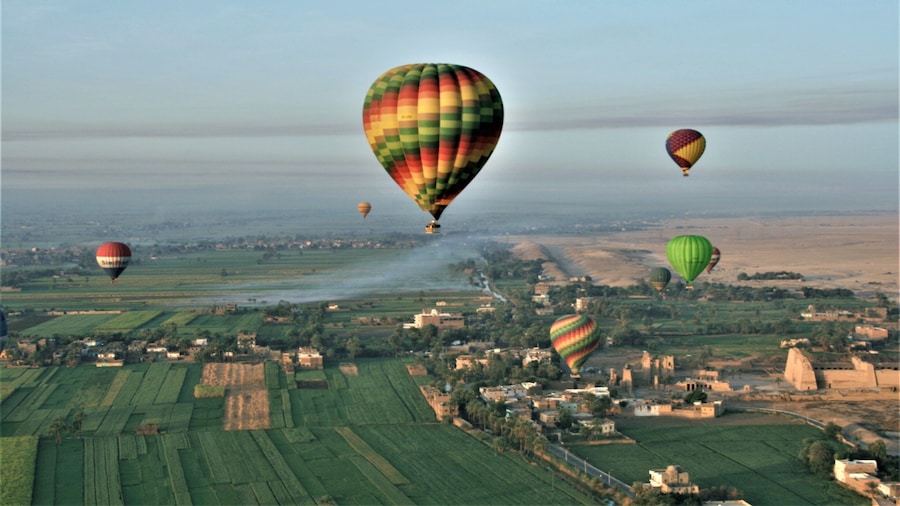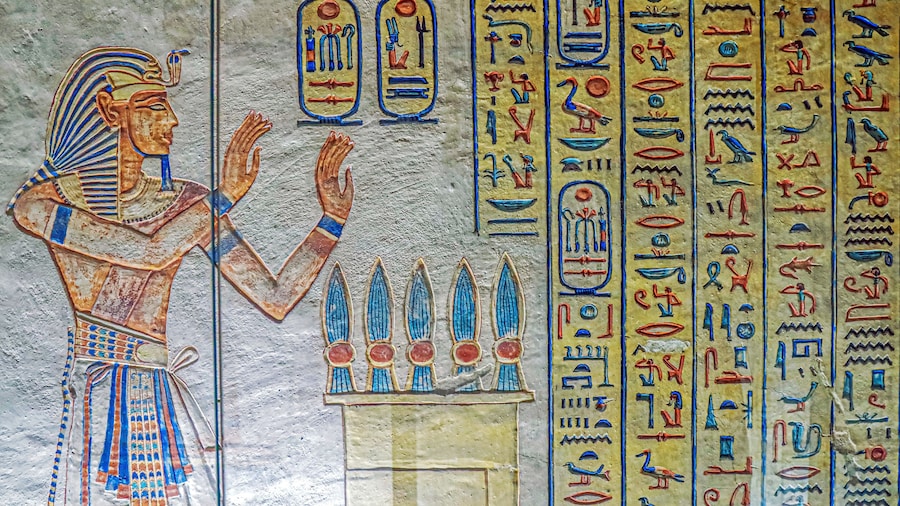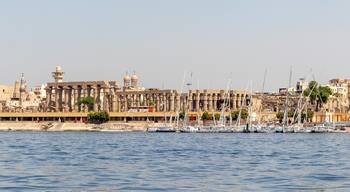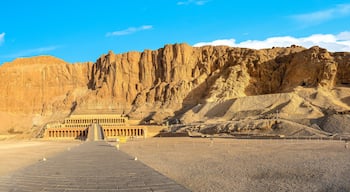Luxor is the world’s greatest open-air museum. The scale, grandeur, craftsmanship and sheer depth of history of the monuments that have survived the passing of ancient Thebes are simply astounding. Furthermore, the location of the sites is simply breathtaking: the Nile flows between the modern city and the ancient necropolis on the west bank. Fertile lands abruptly come to a stop where irrigation channels cease and everything is presided over by the dramatic cliffs and slopes that have sheltered these architectural treasures for centuries. The temples of Karnak and Luxor in the east and the tombs on the west bank that contain inscriptions and paintings that look as if the paint and carvings have been made just yesterday. This is history to amaze and inspire: prepare yourself!
Areas & Neighbourhoods in Luxor
Luxor – Standing aloof in the centre of town, and offering grace to the waterfront, shops and bazaars that surround it, is the temple of Luxor. Built in the New Kingdom around 1400 BC, its grand colonnades and pylons are atmospherically lit at night but best viewed by day if you want to make out the delightful details it contains. Grab a bite to eat at one of the fine restaurants Luxor boasts before you take in the sights at the Luxor Museum and Mummification Museum.
Karnak – The temple complex here were built on an enormous scale so the structures could house the gods. There are three main precincts, the largest being the Precinct of Amun which could hold at least ten great cathedrals. The site is just north of central Luxor and, from the Avenue of Sphinxes to the Giant Scarab and Sacred Lake, merits at least half a day of your time. You won’t be disappointed!
The Theban Necropolis – The same obsession with death and resurrection that led to the monumental pyramids of the Ancient Kingdoms led to the New Kingdom to create the necropolis that lies just across the Nile from Luxor. The grandest tombs are in the Valley of the Kings, where you’ll find Tutankhamun’s and Ramses VI’s, and the Valley of the Queens, where the vivid paintwork of Queen Nefetari’s is astounding, but there are many other sites to explore here too.
Edfu – A daytrip from Luxor can bring you to Edfu where you will find the best-preserved cult temple in Egypt. Dedicated to the falcon-headed god Horus, and built in the Ptolemaic era, ranks alongside Karnak and the Valley of the Kings as one of the must-see sites of the Nile valley.
Things to See in Luxor
The treasure trove of archaeological sites around Luxor is almost inexhaustible in the number of sights it offers you. The Luxor Temple itself, Karnak, the Valley of the Kings and the Valley of the Queens are undoubtedly the main historic monuments. Yet, you should also consider the Tombs of the Nobles, where hidden tombs were spurned in favour of ostentatious foothills, the Ramesseum and the temples a little further afield at Esna and Edfu.
Things to Do in Luxor
It’s not what you do – it’s the way that you do it. You can visit the west bank sites by donkey, camel, motorbike, cycling, on foot, by private car tour or, even, from a hot air balloon. If you opt to get an aerial view you will be amazed at the dramatic change from fertile land to desert and you will get awesome views of the temples below. Should all that monumental grandeur gets too much why not sail away for a day on a felucca down the Nile or head for the bazaars for a spot of bargaining and a bag full of souvenirs?


